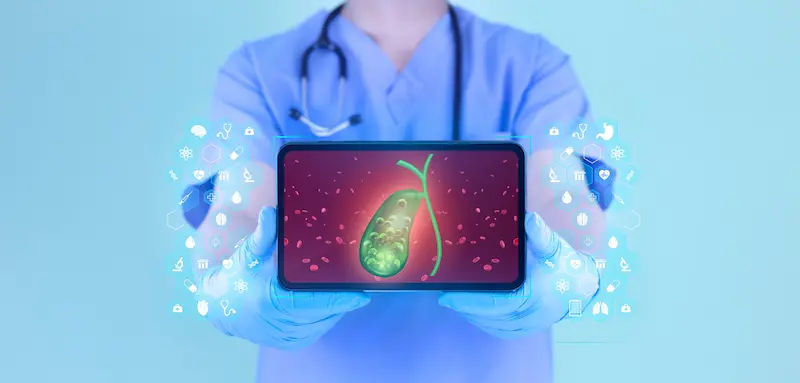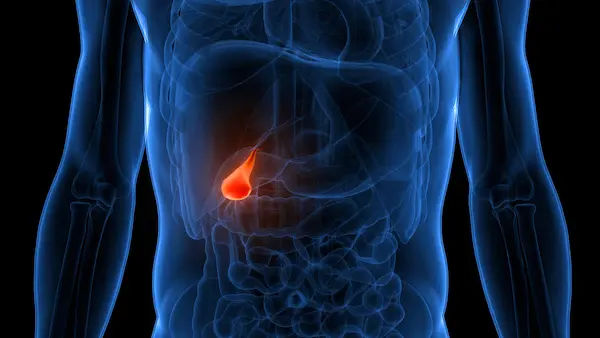Long-Term Effects of Gallbladder Removal
Learn the long-term effects of gallbladder removal, including digestion changes, fat malabsorption, and how to manage symptoms with diet and lifestyle. Discover when to seek medical help and how to live well without a gallbladder.


If you or someone you know has had their gallbladder removed (a surgery called cholecystectomy), you might wonder how it affects long-term health. While the gallbladder isn’t essential for survival, its absence can bring some changes to digestion and overall well-being. This article explains what to expect after gallbladder removal and how to manage any long-term effects comfortably.
Why is the Gallbladder Removed?
The gallbladder is a small, pear-shaped organ that stores bile—a digestive fluid produced by the liver. Bile helps break down fats in the food we eat. Sometimes, gallstones (hard deposits) form in the gallbladder, causing pain, infections, or blockages. When these problems become severe or recurrent, doctors may recommend removing the gallbladder.
What Happens After Gallbladder Removal?
Since the gallbladder is gone, bile flows directly from the liver into the small intestine instead of being stored. For most people, the body adapts well, but some experience digestive changes.
Common Long-Term Effects
1. Digestive Changes (Postcholecystectomy Syndrome)
Some people experience bloating, gas, or indigestion, especially after eating fatty foods.
Diarrhoea or loose stools may occur because bile flows continuously into the intestine.
These symptoms usually improve within a few weeks to months as the body adjusts.
2. Fat Malabsorption
Without stored bile, digesting fatty foods can be harder, leading to loose stools or nutrient deficiencies (like vitamins A, D, E, and K).
3. Increased Risk of Acid Reflux
Some people may experience heartburn or acid reflux due to changes in bile flow.
4. Slight Risk of Liver or Digestive Issues
Rarely, long-term bile flow changes may contribute to liver or intestinal concerns, but this is uncommon.
How to Manage Long-Term Effects
Here is how you can manage long-term effects of gallbladder removal:
Dietary Adjustments
Since digestion changes, modifying your diet can help:
Start with small, frequent meals instead of large, heavy ones.
Limit fatty, greasy, or fried foods (e.g., butter, cheese, fast food).
Increase fiber gradually (whole grains, fruits, vegetables) to regulate bowel movements.
Stay hydrated to help digestion.
Consider probiotics (yogurt, kefir) to support gut health.
Lifestyle Tips
Exercise regularly to maintain a healthy digestive system.
Keep a food diary to identify which foods trigger discomfort.
Avoid rapid weight loss diets, as they can worsen digestion.
Consult a top nephrologist for the best advice
When to See a Doctor
Most people adjust well, but consult a doctor if you experience:
Severe or persistent diarrhea.
Unexplained weight loss.
Jaundice (yellowing of skin or eyes).
Constant abdominal pain.
Can You Live Normally Without a Gallbladder?
Yes! Most people lead a completely normal life after gallbladder removal. The body adapts over time, and with a balanced diet, symptoms usually improve.
Need Help? Consult a Specialist
If you’re struggling with digestion after gallbladder surgery, Apollo 24|7 can connect you with expert gastroenterologists for personalized advice. You can also book tests to check for any nutritional deficiencies or digestive issues.
Conclusion
Gallbladder removal is a common and safe procedure, but being mindful of dietary changes can make recovery smoother. Listen to your body, eat wisely, and don’t hesitate to seek medical advice if needed. With the right care, you can enjoy a healthy, symptom-free life even without a gallbladder!
Would you like to consult a specialist or schedule a digestive health check-up? Visit Apollo 24|7 today for expert guidance!
Consult a top nephrologist for the best advice
Consult a top nephrologist for the best advice
Dr Ch Sashidhar
Nephrologist
20 Years • MBBS, MD General Medicine, DNB, Nephrology
Secunderabad
Apollo Hospitals Secunderabad, Secunderabad

Dr Praveen Kumar Etta
Nephrologist
10 Years • MBBS,MD DM(SGPGI) FORMER ASST(PIMS)
Hyderabad
Apollo Spectra Ameerpet, Hyderabad

Dr. Pardha Saradhi
Nephrologist
9 Years • MBBS, MD-DNB (Gen. Med.), DNB (Nephro)
Hyderabad
Apollo Hospitals D R D O kanchanbagh, Hyderabad
(75+ Patients)

Dr. Manju Kamal
Nephrologist
12 Years • MBBS,MD(General Medicine), DNB,DM(Nephrology)
Angamaly
Apollo Hospitals Karukutty, Angamaly

Dr. Aswini Kumar Panigrahi
Nephrologist
23 Years • MBBS, MD (Int. Med.), DNB Nephro
Hyderabad
Apollo Hospitals Jubilee Hills, Hyderabad
(225+ Patients)


